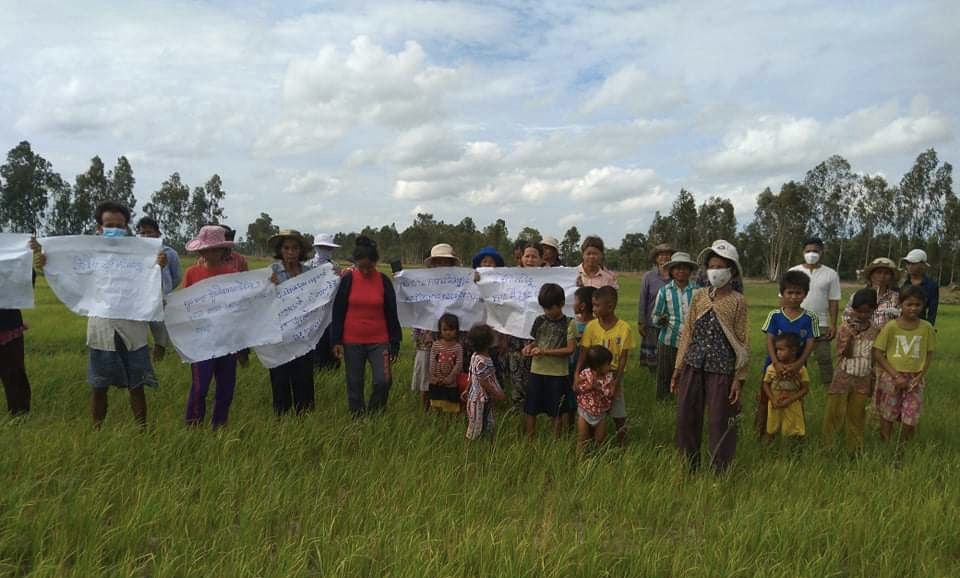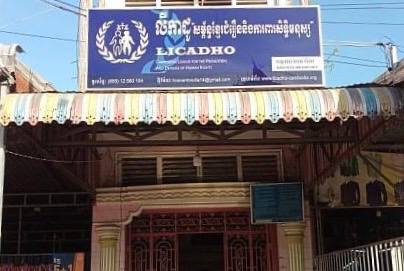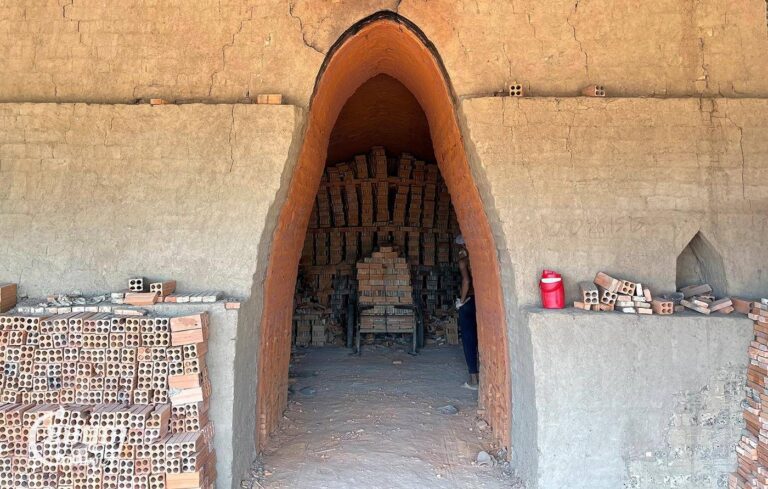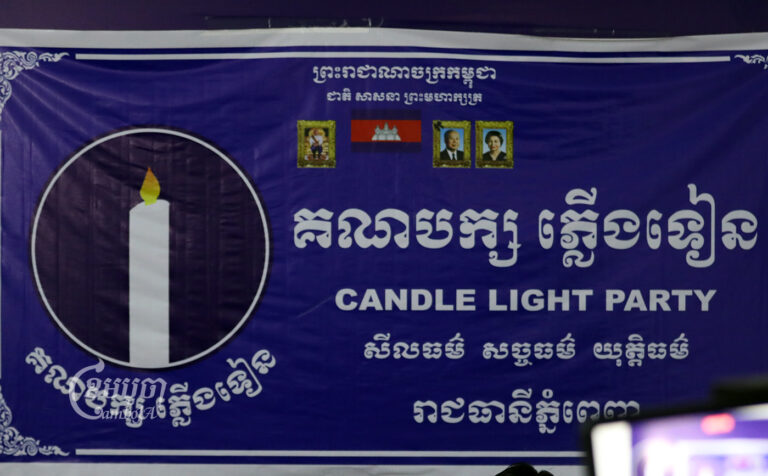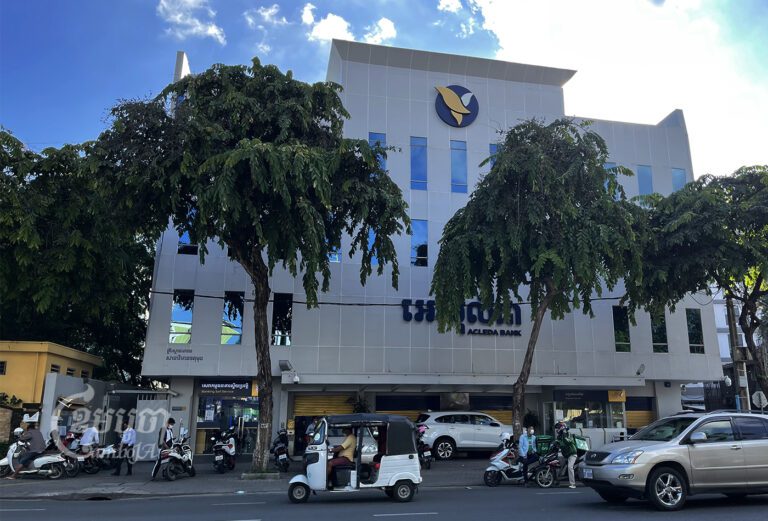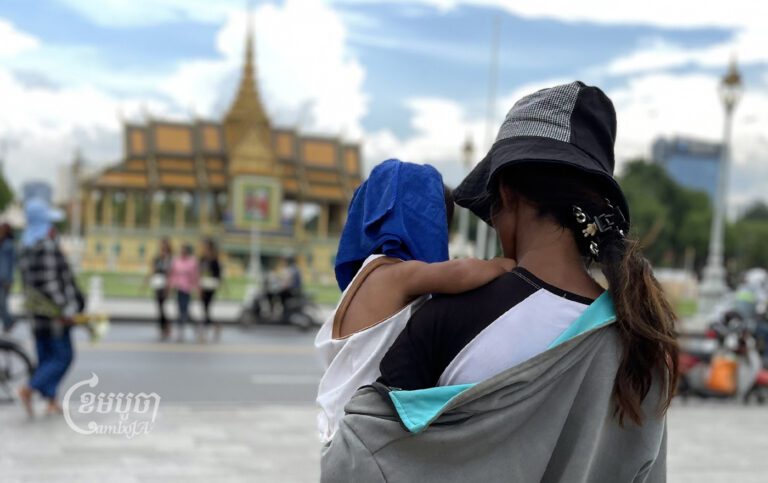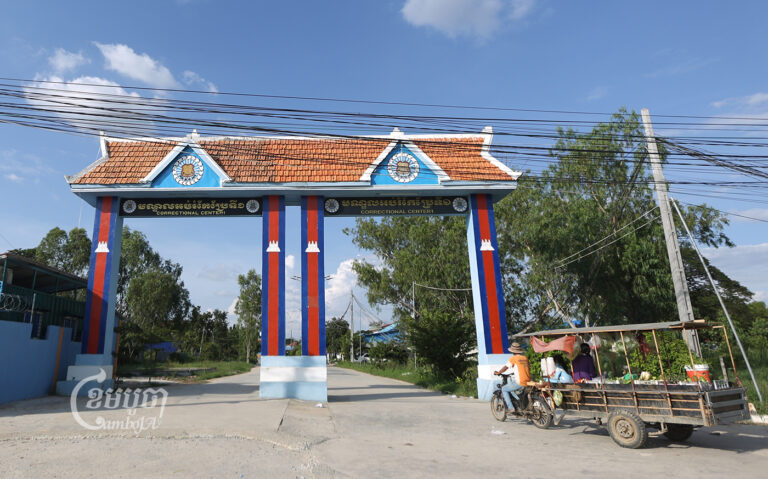Two representatives of a farming community in Svay Rieng province who have been charged under the COVID-19 law were released on bail as more local families accept state compensation in a farmland dispute sparked by a canal restoration project.
Yous Sophorn and In Soth, representatives from the Samaki Chek Meas community in Svay Chrum district, were released Wednesday after requesting their lawyer. The two were arrested in late August and are charged with obstructing the implementation of administrative measures to prevent the spread of COVID after they led a August 2 protest against the Kampong Chrey canal project, which is under management of the Ministry of Water Resources. That protest drew more than 100 families with claims to roughly 99 hectares of farmland that would be affected by the canal restoration.
Those charged with violations of the recently passed COVID law may, under articles 10 and 11, be sentenced with as many as five years in prison and fined up to 20 million riel, or about $5,000.
Yous Sophorn told CamboJA her family had paid to hire a lawyer to request her release on bail.
“They told me that I must appear anytime when the court summoned me to show up for clarification,” she said of court officials.
In Soth, who is president of the Samaki Chek Meas Association, told CamboJA that her family has not yet decided on the issue of compensation even though most villagers have accepted.
“The villagers have already given their thumbprints and my family members have yet to decide,” she said. “I do not know what to think next, because it is difficult, if we protest, the authorities are watching us.”
Soth said the compensation offered by the authorities is not appropriate as it is not enough to truly compensate families for the loss of their farmland.
The canal restoration has been at the center of a long-running dispute between the government and local villagers. Officials say the land in question is already state-owned and that compensation is only for lost crops, not the land itself. Four days after the early August demonstration against the restoration project, 60 families connected to the event were placed in 21-day quarantines after two villagers tested positive for COVID-19, leading some locals to allege officials are using health measures to force a resolution of the land dispute.
UN experts in April raised concerns about the “excessive prison sentences and fines” prescribed by the Law on Preventive Measures Against the Spread of COVID-19 and other Severe and Dangerous Contagious Diseases, as the law is officially known. The legislation was swiftly passed and enacted in March without public consultations.
Svay Rieng provincial court spokesman Tep Phalla said he had not yet received any information on the release on bail of those two community representatives.
Prech Samon, a community member representing the remaining four families in Thnong village who still refuse to receive compensation, said villagers and authorities negotiated again on Thursday. She said the families demand $3 per square meter of land being taken by the state for the canal restoration.
“The authorities told us that this is the last negotiation and if we do not accept, we will not receive compensation in the future,” she said. “I will accept when I can get $3 per square meter.”
Svay Chrum district Governor Hem Sarith said almost 99 percent of the affected population had accepted compensation to make way for the restoration project.
He also said the authorities cannot provide the level of compensation demanded by the remaining families, adding that anyone not satisfied with the proceedings can file a complaint.
“This is the government’s policy on state land and a large number of people will accept it,” he said. “And some people need to take this into account because the compensation will not go up.”
Am Sam Ath, the rights group’s monitoring manager Licadho, said the authorities should resolve the land dispute at the core of the conflict, rather than use the force of law against community representatives.
“We see their protests going on and on until they are fined because their land is not finished. The root cause is the land issue, and the relevant authorities have to resolve the issue peacefully,” he said.


